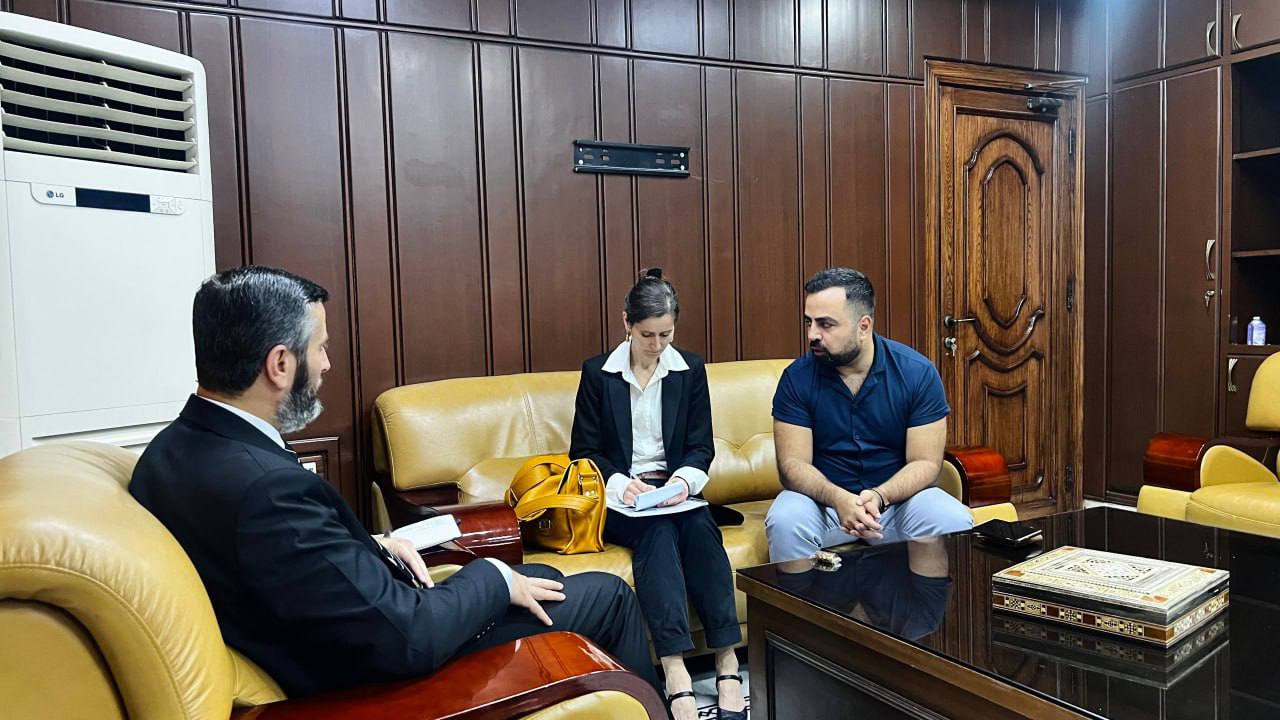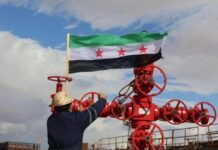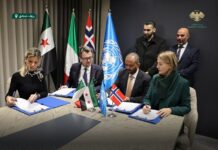 Syria is facing one of the most severe water crises in its modern history, compounded by a devastating drought that has gripped the country in recent years. The crisis drastically reduced available water resources, creating shortages for drinking, irrigation, and sanitation. Years of conflict have worsened the situation, damaging key infrastructure such as pipelines, pumping stations, and treatment facilities.
Syria is facing one of the most severe water crises in its modern history, compounded by a devastating drought that has gripped the country in recent years. The crisis drastically reduced available water resources, creating shortages for drinking, irrigation, and sanitation. Years of conflict have worsened the situation, damaging key infrastructure such as pipelines, pumping stations, and treatment facilities.
In response to this growing emergency, Deputy Minister of Energy for Water Resources Engineer Usama Abu Zaid met with the Director of the Danish Refugee Council (DRC) to discuss strengthening joint cooperation in the water sector. The meeting focused on developing strategic mechanisms for renovating Syria’s water infrastructure and advancing long-term water security initiatives.
Urgent Need for Infrastructure Rehabilitation
Engineer Abu Zaid outlined the critical challenges facing the water sector, noting that many facilities and treatment plants suffered extensive damage from years of instability. He emphasized that immediate action is needed to restore these essential systems and ensure continuous water services for all citizens.
“Restoring water facilities is not only a technical matter but a vital element of public health and stability,” he said, indicating the urgency of comprehensive repair efforts.
The DRC representative affirmed the organization’s readiness to provide full technical and logistical assistance, particularly in rehabilitating damaged water stations. This commitment aims to help stabilize water services throughout the country and reinforce the sector’s resilience against ongoing and future challenges.
A Framework for Sustainable Partnership
Both parties agreed to draft a Memorandum of Understanding (MoU) establishing a formal framework for collaboration on future projects. The agreement will outline mechanisms for joint implementation of programs focused on water management, infrastructure restoration, and sustainability across multiple Syrian regions.
The initiative’s primary goal is to ensure long-term water security, particularly in areas where infrastructure has most heavily been affected by conflict and drought. Through aligning national priorities with international expertise, the cooperation seeks to transition from short-term humanitarian interventions to sustainable development strategies.
Building Resilience Beyond Emergency Response
The meeting between Syrian officials and the DRC marks a pivotal step toward addressing one of Syria’s most urgent infrastructural and humanitarian crises. The partnership reflects a shift in approach from emergency repairs to comprehensive restoration and resilience-building.
This collaboration combines Syria’s local knowledge with Denmark’s technical and humanitarian experience to promote lasting solutions in water resource management. Beyond restoring damaged facilities, the partnership aims to stabilize essential public services, mitigate public health risks, and support Syria’s broader recovery and economic renewal.
If fully implemented, the agreement could serve as a model for sustainable water management in post-conflict settings, reaffirming that effective international cooperation can help secure one of humanity’s most essential resources.








